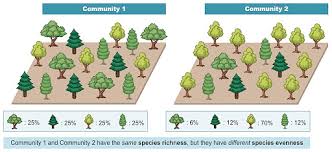Decomposition Detailed Analysis
Decomposition is a fundamental ecological process that breaks down dead organic material into simpler substances, recycling nutrients and contributing to ecosystem health. Here’s a detailed analysis of decomposition, including its stages, key organisms involved, and its ecological importance.
1. Stages of Decomposition
1.1. Fresh Stage:
- Description: Begins immediately after death. The body or organic material starts to cool and the metabolic processes cease.
- Processes: Bacteria and fungi start to colonize the dead material. Enzymes begin breaking down complex molecules into simpler compounds.
1.2. Putrefaction Stage:
- Description: Characterized by the release of gases like methane, hydrogen sulfide, and ammonia, which cause the material to bloat and emit odors.
- Processes: Anaerobic bacteria (those that do not require oxygen) become more active, breaking down proteins and producing foul-smelling compounds.
1.3. Black Putrefaction Stage:
- Description: The material turns dark and becomes liquefied. The process of breaking down proteins continues.
- Processes: Fungi and bacteria further decompose the material, and the nutrient-rich liquid starts to seep into the surrounding environment.
1.4. Dry Decay Stage:
- Description: The material has mostly decomposed, leaving behind a dry, brittle residue.
- Processes: Decomposition is largely completed by fungi and bacteria. The remaining material is primarily mineral and a small amount of organic matter.
2. Key Organisms Involved in Decomposition
2.1. Microorganisms:
- Bacteria: Play a primary role in breaking down proteins, fats, and carbohydrates. They are essential for the initial breakdown of organic matter.
- Fungi: Decompose tougher materials like cellulose and lignin found in plant tissues. They are crucial in breaking down wood and leaf litter.
2.2. Invertebrates:
- Insects (e.g., beetles, flies): Help to break down material mechanically and contribute to the decomposition process by feeding on it and laying eggs.
- Earthworms: Aerate the soil and break down organic matter, speeding up decomposition by mixing it into the soil.
2.3.Vertebrates:
- Scavengers (e.g., vultures, coyotes): Feed on dead animals, contributing to the decomposition by consuming large amounts of organic material.
3. Ecological Importance of Decomposition
3.1. Nutrient Recycling:
- Description: Decomposition returns essential nutrients like nitrogen, phosphorus, and potassium to the soil, making them available for uptake by plants.
- Importance: This recycling process supports plant growth and maintains soil fertility.
3.2. Soil Formation:
- Description: Organic matter from decomposed material contributes to soil structure, improving its texture and water-holding capacity.
- Importance: Healthy soil supports plant growth and ecosystem productivity.
3.3. Carbon Cycle:
- Description: Decomposition releases carbon dioxide back into the atmosphere as decomposers break down organic material.
- Importance: This process is a key component of the global carbon cycle, affecting climate and atmospheric carbon levels.
3.4. Disease Control:
- Description: Decomposers help control the spread of pathogens by breaking down dead organisms that might harbor diseases.
- Importance: This process reduces the risk of disease outbreaks in ecosystems.
Practice Questions
- Question:
- Describe the role of bacteria and fungi in the decomposition process. How do their functions differ?
Answer Outline:
- Bacteria: Primarily break down proteins, fats, and carbohydrates. They are crucial in the initial stages of decomposition.
- Fungi: Decompose more complex materials like cellulose and lignin, and are particularly important in later stages of decomposition.
- Question:
- Explain how decomposition contributes to the nutrient cycle in an ecosystem. Why is this process important for plant growth?
Answer Outline:
- Decomposition breaks down organic matter into nutrients that are returned to the soil. These nutrients are essential for plant growth, supporting ecosystem productivity and health.
- Question:
- How does the presence of invertebrates like earthworms influence the decomposition process in soil?
Answer Outline:
- Earthworms aerate the soil and mix organic matter into it, which speeds up decomposition and enhances soil structure and nutrient availability.
- Question:
- Discuss the impact of decomposition on the carbon cycle. How does this process affect atmospheric carbon dioxide levels?
Answer Outline:
- Decomposition releases carbon dioxide into the atmosphere as organic material is broken down. This process is a key part of the carbon cycle, influencing global carbon levels and climate.
Understanding decomposition helps highlight the interconnectedness of ecological processes and the vital roles that different organisms play in maintaining ecosystem health and function.
Also Read




